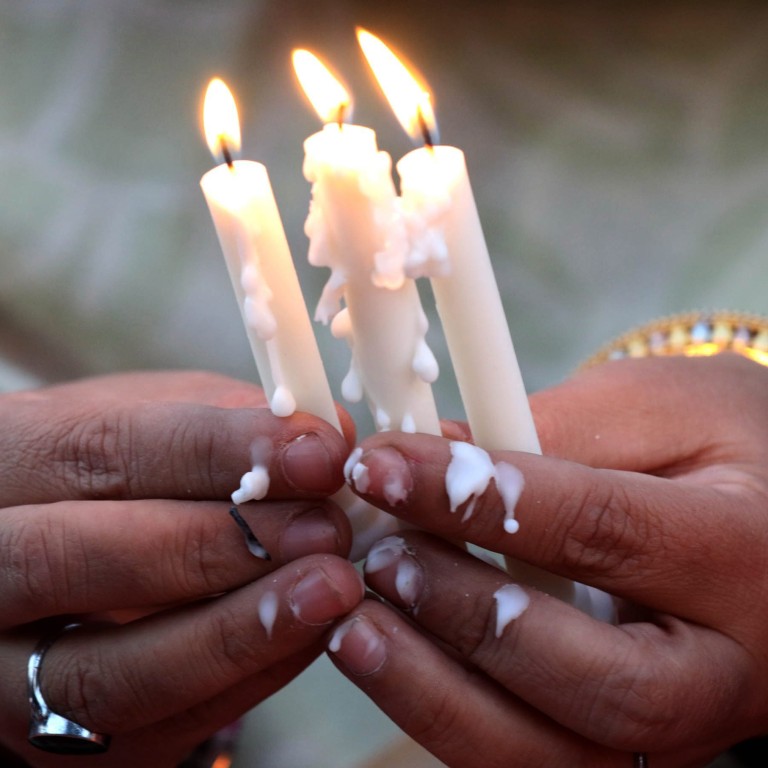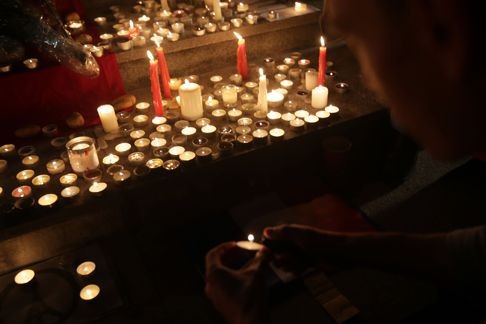
It’s time to let moderates, in Hong Kong and elsewhere, build the bridges that we can all benefit from
Alice Wu says the dangers of radicalisation are all too apparent in the world right now, from Paris to Beirut – and we must do as much as possible to foster openness and inclusion as the antidotes to isolation and division
Violent radicalism seems far away – or, more often, we like to believe it is being kept at bay – until it strikes with such force, causing massive tragedies, that we cannot ignore it. In the span of just a few weeks, violent radicalism has taken down a Russian passenger jet, attacked Beirut, then Paris, and has since tried to threaten New York city.
Earlier this month, Spanish authorities arrested three “extremely radicalised” men in Madrid, accused of being part of a group linked to Islamic State and “ready to attack” the city. I learned about the Madrid arrests while sitting in my Barcelona hotel room, staring at Madrid on my itinerary. Gripped by fear, vulnerability and helplessness, I tried to keep life in perspective.
Every day, authorities around the world work round the clock to prevent tragedies. That is something we must also “see”. These efforts have not all been futile. Our sense of security may never be absolute, but it is not all wishful thinking, either.
Amid unspeakable acts, we put on a brave face as a show of strength and as a symbol for our renewed faith in humanity’s triumph over evil. But yet, helplessness remains a very real condition. At such times, we must ask: are we as helpless as we feel? How have we contributed to radicalism, not only of the extremist kind?
Radicalisation can be both violent and non-violent. Governments and security agencies have different definitions of radicalisation. When we learn of phrases like “fully radicalised” and “extremely radicalised”, we must accept there is a point where people become “radicalised”; a point of no return.
And, when we consider that, we realise that somewhere along that process, there are things we can perhaps do to prevent individuals from getting near to that point. While violent extremists should be left to qualified professionals, we can however take the initiative to nurture an environment and culture that counters the elements that fuel the radicalisation process.

It is important to understand there is nothing wrong with radical thought. Radicals’ progressiveness and unconventional nature and actions have been catalysts for change, for better and worse. It may be hard to pinpoint when radical thinking becomes a threat, but there are ways of deterring the destructiveness of increased isolation and unaddressed grievances early on, without stifling its potential to bring change to society.
Diversity, tolerance, openness and freedom are enemies of radicalisation. When we make every effort to ensure people are not ostracised on the basis of race, colour, religion, creed, gender or political preferences, we are creating conditions that hinder radicalisation. When we refuse to create boundaries of isolation, we are actively tearing apart the pathways of radicalisation.
Once extremist elements enter the picture, where annihilation of people of different views takes hold, we must fight against them.
One tell-tale sign of that sort of radicalisation is a group’s rejection of moderate voices. And that is something we are familiar with: political moderates were basically cut off by both sides in the last constitutional reform debate. There was no dialogue, just unaccommodating, uncompromising and irrevocable positions at the extremes, and the heightened rhetoric and emotions that accompany dogmatic positions. We must do all we can not to repeat the community’s readiness to take sides, shut out differing views, and raise accusatory fingers at friends, family and neighbours.
While yesterday’s district council elections were once widely seen as a litmus test of support for the pan-democratic and pro-establishment camps in the wake of the Occupy protests, the lack of an “election atmosphere” and failure of candidates to drum up significant political heat is proof that we are ready to make room for moderates.
When we look at the world and try to come to terms with the horrors that isolation and disengagement create, it’s clear what we need to do as a community. It’s not about avoiding conflicts, but cultivating openness, and refraining from rejecting different opinions or accepting political labels and simple generalisations. We must demand that moderates be given the room to bridge divides and hold our government and political actors to these standards.
Alice Wu is a political consultant and a former associate director of the Asia Pacific Media Network at UCLA

